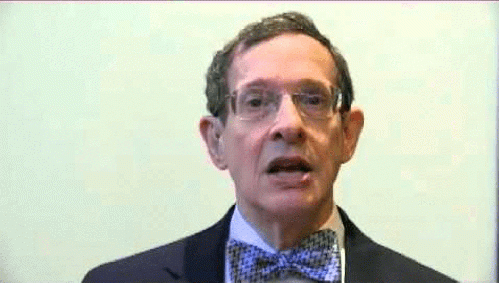[Author's note: This article will make more sense if first you read at least one of the other articles in this series: Torture, Academic Freedom and a Teachable Moment, or An Old Guard Psychologist Inspires a Chill on Academic Freedom.]
Psychologists for Social Responsibility, an organization of psychologists committed to peace, social justice and human rights, has taken an outraged interest in the move by former American Psychological Association (APA) President Gerald Koocher to persuade decision-making parties to retract an academic article on the psychology-abetting-torture scandal. The article is "A Teachable Ethics Scandal" by Mitchell Handelsman. The SAGE journal Teaching of Psychology published it online in June, and it is currently still available. This journal is also the flagship journal of Division 2 of the APA (though it is not, to prevent any confusion, an APA-published journal, as SAGE and APA are independent and indeed competing publishers).
Though the journal's editor, Andrew Christopher, originally confirmed in July that the retraction would eventually go through, that decision later underwent review, and, according to SAGE Public Relations Associate Camille Gamboa, SAGE now "has no plans" to retract the article (see below). This is a welcome change and possible credit to SAGE's good intentions and responsiveness to the argument that this retraction threatens academic freedom.
However, to the extent the means of Koocher's originally effective persuasion to retract involved a threatened lawsuit or other punitive measure, it is not clear what SAGE or the APA will do to mitigate the effects of any such threatened punishments on the author and editor as individuals.
The scandal that Handelsman's article refers to is the collusion of the American Psychological Association (APA) with the forces of U.S. torture after 9/11. If you have never previously heard of this story, you might want to begin your review of it here.
In her Psychology Today blog, Alice LoCicero, President-Elect of Division 48 of the APA, introduced this concern widely to the public on August 15 with an excellent summary of the retraction controversy and the broader context framing it.
The current APA president Antonio Puente then very swiftly and publicly responded that her blog post was based on "false premises" and reached "false conclusions":
The first error is in asserting that the article "A Teachable Ethics Scandal," by Mitchell M. Handelsman, PhD, is being retracted as part of an organized effort to suppress the American Psychological Association's history regarding interrogation. This is not true. Sage Publishing, which publishes the journal Teaching of Psychology, informs us it has no plans to retract the article. And APA has not asked for such a retraction.
LoCicero did not state there was an organized effort to suppress Handelsman's article--just that the broader "attempt to suppress the story of APA and torture" is part of a context that has "led a journal for an APA division to decide to retract a peer reviewed and accepted paper that would have encouraged ethics teachers to teach about the multiple ethical dilemmas in this series of events."
Note that she said there was a "deci[sion] to retract" not that the article is "being retracted." And she certainly did not state that current APA leadership was part of any organized effort, nor that this leadership had asked for a retraction.
As for SAGE having "no plans" to retract the article, this was news to LoCicero and to all of us who had been watching the controversy closely.
Puente wrote his response August 18. It was not until August 19 that Camille Gamboa, Public Relations Associate at SAGE with whom I had been in obviously-very-concerned correspondence since August 9, informed me by email about this. And she informed me only after I sent her a copy of the APA response:
Sorry not to have alerted you to this notice ahead of time. Yes, I can confirm it is true that there are currently no plans to retract this paper. The only slightly misleading part of the statement is that this is ultimately the decision of the editor of the journal, whom we at SAGE support.
I of course accept her apology because everyone gets busy, but it would be nice if Puente apologized to LoCicero for implying that she was making false statements that were not based on the best knowledge she had available at the time. There was never a public statement from SAGE about having no plans to retract, nor any way she could have found this out prior to the APA president's response.
Also, what is most bizarre is that LoCicero's blog is criticizing a climate of denial that is, I would argue, less saliently associated with the current APA leadership--which has, to its credit, continued to affirm its strong stand against psychologists participating in interrogations.
The climate of denial is much more associated with those who have filed a lawsuit against the APA. These individuals appear unhappy with the more socially responsible direction APA has taken on the torture issue, or at least with the way they as individuals get portrayed in the documented history underlying this change in direction. So the APA president, as he has in other important ways shown his commitment to this new direction, should be welcoming any pressure LoCicero is bringing to bear in this regard.
Next Page 1 | 2 | 3 | 4 | 5 | 6 | 7 | 8 | 9 | 10 | 11 | 12 | 13 | 14 | 15
(Note: You can view every article as one long page if you sign up as an Advocate Member, or higher).






